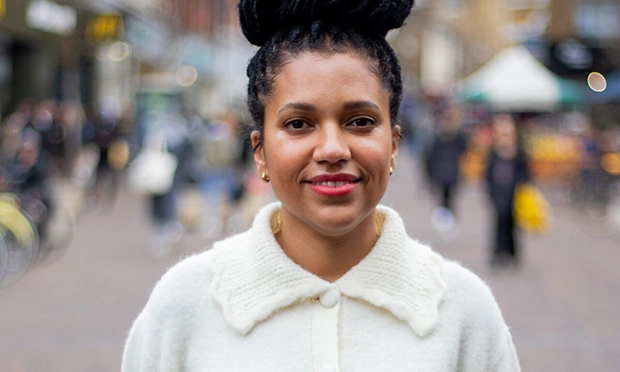Hackney Council launches ‘in-depth review’ of school behaviour policies to tackle high exclusion rates

Cllr Sophie Conway warned that exclusions were disproportionately affecting specific groups. Photograph: Hackney Labour
The Town Hall has announced a review into school behaviour policies, as councillors and officials look to rein in the number of exclusions and suspensions in the borough.
Last night (25 February), the children and young people scrutiny commission heard from inspectors, policy experts and campaigners about why Hackney has one of the highest rates of exclusions in the capital.
Cllr Sophie Conway, committee chair, said that Hackney needed to be “tough on poor behaviour, tough on the causes of poor behaviour”, but warned that expulsions were disproportionately affecting specific groups of children.
She added that the issue was currently a “topical” one for the borough, in what appeared to be a reference to an active child safeguarding investigation into the impact of a local academy’s behaviour policy on its pupils.
The commission’s review follows a 2021 report highlighting how pupils from Black and global majority backgrounds and those with special educational needs were more likely to be permanently excluded.
Data taken from between 2016 and 2024 shows that overall, Hackney’s permanent exclusion rate (0.1 per cent) is twice the inner London average (0.05 per cent).
Hackney’s suspension rate, at 8.2 per cent, is also significantly above the regional average of 5.3 per cent.
The council states that “persistent disruptive behaviour” is the main reason for these exclusions, rather than “severe one-off incidents”.
Councillors also received insights from the Education Policy Institute (EPI), which found permanent exclusions, especially in state-funded secondary schools, are at their highest rate since records began.
Whitney Crenna-Jennings, the EPI’s associate director for wellbeing, mental health and inclusion, said there had been a spike in “managed moves”, where pupils agree to attend a different school but exclusions are not officially recorded by the current school.
The EPI’s analysis revealed that special needs are much less likely to be identified in areas with high levels of academisation and where more pupils receive free school meals – which could explain the suspension levels in Hackney.
The connections between SEND, mental health and exclusion were highlighted at a recent ‘Lost Learning’ conference held by the magazine CYP Now.
Charlotte Rainer from the Children and Young Person’s Mental Health Coalition (CYPMHC), who spoke at the event, was also present at Tuesday’s meeting.
She told councillors how specific, “punitive” techniques used by schools were more harmful than others to mental health, and did not help address the “underlying issues”.
According to young people and parents, removal rooms and other forms of pupil isolation were the most detrimental, she added.
In 2017, the Institute for Public Policy Research (IPPR) found that, despite only 6,685 reported permanent exclusions in the previous year, 48,000 of the most vulnerable pupils were educated in alternative provision – which caters for excluded students.
The Institute’s report warned that “still more pupils are not captured in any government data, yet are functionally excluded from mainstream school”.
While Hackney’s data is stark – with the second highest exclusion rate in inner London – the council’s aim to better balance high expectations for behaviour with inclusion is not a universal one.
In August, after analysis from the Guardian revealed 50 secondary schools had suspended more than a quarter of their pupils in the years after the pandemic (2022/23), a behaviour expert who advises the Department for Education (DfE) suggested there was no “right” level of suspensions.
“Obviously averages are just that, and some will be above, some will be below. Schools that serve more disadvantaged communities will almost by definition use disciplinary methods more frequently,” said Tom Bennett.
“Suspending might actually be the right thing to do. What are the school outcomes? Are kids doing well? Maybe the suspensions keep them safe. Suspensions are not a good or bad thing intrinsically, they are a strategy.”
Cllr Conway acknowledged that, heading into the review, the council did not have a concrete evidence base for how it can get better results.
“It begs the question: what are we doing? Obviously, this is far bigger than us. How do we set a standard and say, ‘this is what inclusion looks like’?”
The borough’s education chief, Cllr Anntoinette Bramble, said although more support should be provided in schools, “no challenging context mitigates why Black and Global Majority children, children with SEND, are more likely to be excluded than any other child”.
“It’s really important that this point sticks in our minds,”she added.
